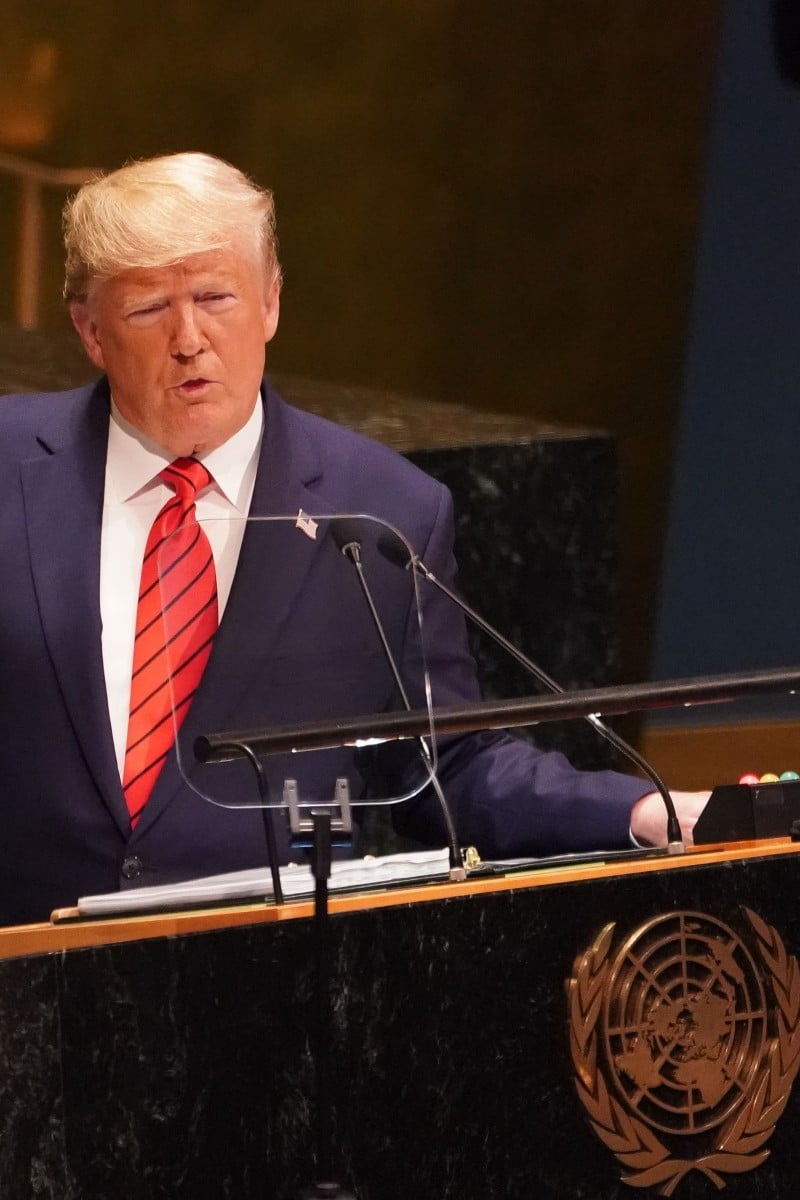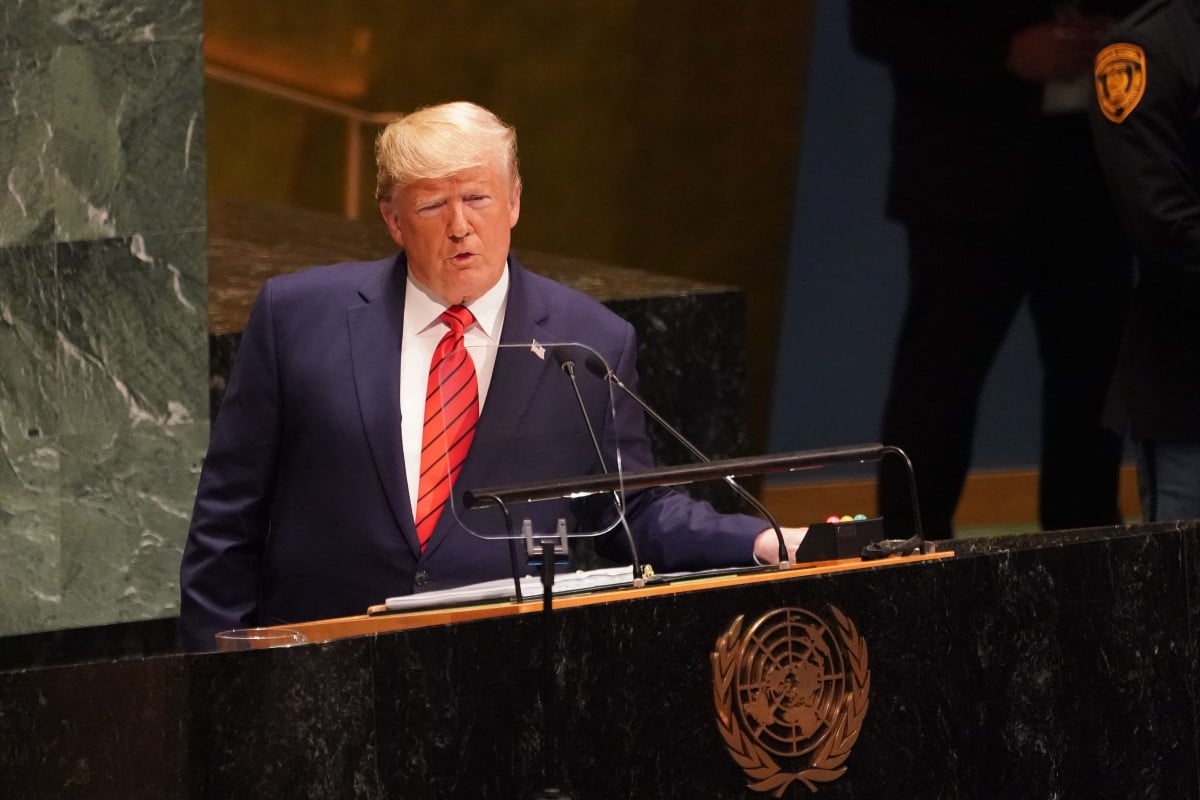
What do Donald Trump, Bill Clinton, Richard Nixon and Andrew Johnson have in common?
As a formal impeachment inquiry into US President Trump is announced, here are the three US presidents who faced similar situations
 US President Donald Trump is being impeached.
US President Donald Trump is being impeached. Donald Trump joins a small group of fellow presidents now that he’s the subject of an official impeachment inquiry in the House of Representatives. Only three of his predecessors underwent similar proceedings: Andrew Johnson and Bill Clinton, who were acquitted after trials in the Senate; and Richard Nixon, who resigned to avoid being impeached in connection with the Watergate scandal.
The rarely-used procedure is spelled out in Article II, Section 4 of the Constitution, which stipulates that the president and other officers of government “shall be removed from office on impeachment for, and conviction of, treason, bribery, or other high crimes and misdemeanours”.
The first step toward impeachment is taken by the House, which debates and votes on whether to bring charges. This can be done by a simple majority of the House’s 435 members.
11 political terms to help you understand elections, government, and leaders like Trump
If the House adopts an impeachment resolution, the Senate then holds a trial, with the chief justice of the US Supreme Court presiding. A two-thirds majority vote is required in the Senate to convict and remove a president - an outcome that has yet to occur.
Only 20 government officers in all, including Johnson and Clinton, have been impeached, and only eight of them, all federal judges with lifetime tenure, have been convicted and removed from office.
A brief look at past presidential impeachment proceedings:
How Parkland shooting survivor David Hogg turned tragedy into drive for political change
Bill Clinton
The Republican-controlled House voted in October 1998 to begin impeachment proceedings against Clinton after months of controversy over his relationship with White House intern Monica Lewinsky.
That vote was triggered by two rounds of testimony given by Clinton earlier in the year. In January, he denied having a sexual relationship with Lewinsky; in August, under questioning from independent counsel Kenneth Starr before a federal grand jury, he testified that he engaged in an inappropriate relationship with Lewinsky.
Clinton was impeached on December 19, 1998, on the grounds of perjury to a grand jury and obstruction of justice. A Senate trial against Clinton commenced on January 7, 1999, and unfolded over four weeks, with Chief Justice William Rehnquist presiding.
On February 12, the Senate voted to acquit Clinton on both charges - falling far short of the 67 votes needed to convict. Only 45 senators voted for conviction on the perjury charge, and 50 for the obstruction charge.
Taylor Swift gets political - finally
Richard Nixon
The House initiated an impeachment process against Nixon in February 1974, authorising the Judiciary Committee to investigate whether grounds existed to impeach him of high crimes and misdemeanors. The charges mostly related to Watergate - shorthand for the 1972 break-in at the Democratic National Committee headquarters and the Nixon administration’s attempts to cover up its involvement.
In July 1974, the Judiciary Committee approved three articles of impeachment against Nixon - for obstruction of justice, abuse of power and contempt of Congress.
Before the full House could vote on the articles of impeachment, a previously undisclosed audio tape was released that made clear Nixon had a role in the cover-up. He resigned from office on August 9, 1974.
Andrew Johnson
Johnson’s impeachment in 1868 was the culmination of a bitter dispute between the president and the Republican-controlled House over Reconstruction following the Civil War.
The specific trigger for impeachment was Johnson’s attempt to fire Secretary of War Edwin Stanton, who favoured a tougher approach than Johnson toward the defeated South. Nine of 11 impeachment articles concerned the head of the War Department.
The House voted to impeach Johnson on March 3, 1868. Three days later, the Senate convened a formal impeachment trial, with Supreme Court Chief Justice Salmon P. Chase presiding.
On May 16, after an often-stormy trial, the Senate failed to convict Johnson on one of the 11 articles, falling short of the necessary two-thirds majority by one vote. After a 10-day recess, two more votes failed by the same margin, and the trial was adjourned.
